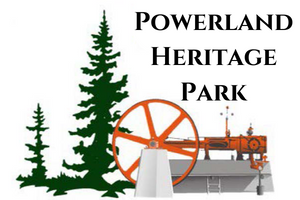This history, orignally written by Gary Clark, appeared on a previous version of antiquepowerland.com.
The first "steam school" at Antique Powerland was started by Roy and Wilmer Heinrich, in 1972. The Heinrich brothers were thresher men and Case dealers in the 1920's in the Portland area, and they knew just about all there is to know about traction engines and threshing machinery.
As I recall, there were about 10 students in the class, including Lowell Boyce, Les Layton, the late Harvey Hilands, my brother, Seymoure, and myself. The class was held on two or three Saturdays in the fall. The first actual engine operation was with a Farquhar engine. It was raining, and they had the nose of the engine just outside the door of the Currans building. The open overhang hadn’t been built yet. We learned how to operate the injector and basic engine controls. The instructors were the late Rodney Pitts and George Price.
The classes were held every two or three years, not on a regular schedule. In the late 1970's, both Roy and Wilmer passed away and no more classes were held. A few years later, Lowell and I revived the steam school, with Rodney Pitts as the main instructor. Through the early 80's the classes were held once every two or three years in the winter, just as the present class is.
Steam school was held in the old WAPI office building, which was a converted roadside fruit and vegetable stand, and it was rather crowded. All the technical subjects were drawn with chalk on a blackboard, by artists that could mostly draw flies. I recall one time while giving a lecture; I took a big slurp on my soda, and about choked on a paper wad that some joker had slipped down the straw! I then noticed, Leonard Miller (WAPI president at the time) and Laurie Boyce (WAPI secretary) were looking guilty, and trying very hard not to bust out laughing.
In the early 1990's, steam school became an annual event with more hands-on engine operations. By the mid ‘90's students had to pass an exam and a certificate of attendance awarded to those who passed. From that point, the school got more organized, with Dan Kearl, Dennis Root, Don Parsio, Lowell Boyce and myself as regular instructors. A series of hand-outs for the class were developed, and the WSFA board authorized the purchase of an overhead projector which made it easier to explain the technical and mechanical aspects. No more chalk wielding blackboard Rembrandts.
Since that time, the WSFA Steam School has been held annually the second Saturday of the month, January through May. The majority of steam operators at The Great Oregon Steam-Up, and some operators at other local area shows, were certified by the steam school.
Current instructors are Dan Kearl, lecturing on boilers, their construction and operation; Dennis Root covers boiler accessories, safety valves, gauges, tri-cocks, injectors and pumps, as well as safety precautions; and Greg Warkentin gives instructions on the basic engine configuration, engine types, how the slide valve operates, controls, oiling, and hand hole gasket installation. The hands-on part takes place in April, with the better weather. Dennis Root, Fred Schulz, Gary Miller and others teach new students how to safely move an engine for the first time.
Graduating students have been awarded a one-year free membership in WSFA or EDGETA, and some of them, we are proud to say, are active members and officers in the organizations. A kind of "spin-off" from the regular steam school class is the steam crane school. This "class" isn't held on a regular basis. The crane crew members recruit people who are interested in learning the operation of this unique piece of machinery. They say formal training takes place when someone starts hanging around, and begins believing the crew's thrilling tales of crane exploits.
Several years ago, Dan Kearl introduced me to one of the classes as "The Dean of Steam School". My duties include notifying new students of class schedules, preparing packets for the students, tracking student attendance, preparing certificates and securing prospective future instructors. As a 501 (c)(3) non-profit organization, it is our mission to train safe and responsible steam operators. Thank you to all who have been a part of the WSFA Steam School and its role in keeping alive the history, spirit and traditions of the steam engine.
